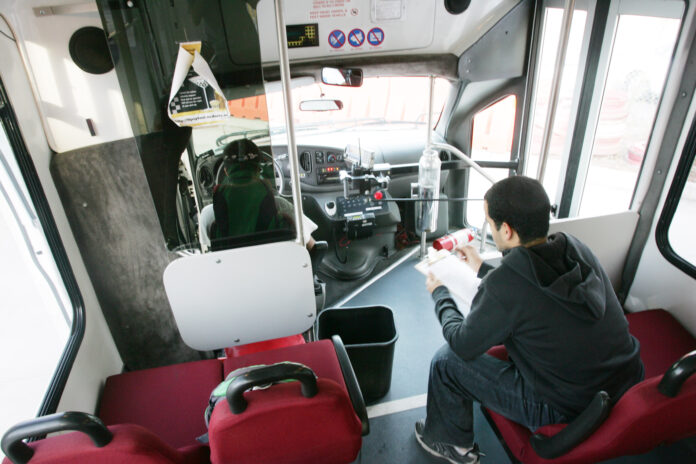Tipsy Taxi, a subsidized unit of ASUCD, plans to install cameras into its vehicles by Winter Quarter 2014.
According to Jay Chou, director of Tipsy Taxi, the primary motive for pursuing camera installation is to ensure student safety and to reduce Tipsy Taxi liability.
“When our drivers are out there driving Tipsy Taxi vehicles, there’s nothing recording them if they get into an accident or if there’s an incident inside our vehicles,” Chou said.
But with the addition of two cameras — one facing inside the vehicle and another facing outside — Chou believes Tipy Taxi’s responsibility for third-party damages will be reduced. Tapes from the recordings will allow for analysis of accidents or dangerous situations in order to determine what went wrong, or who was at fault.
In the past, Tipsy Taxi vehicles have experienced hit-and-runs. It is in these cases specifically that cameras are particularly advantageous; they can potentially capture vehicle license plates. That way, Tipsy Taxi will not be held accountable for any vehicle damage that was caused by an outside party.
Another advantage to the cameras is that they can resolve lost-and-found issues.
“Sometimes, our drivers will find lost items in our vehicles and the cameras will essentially be what we refer to if someone says they’ve lost something,” Chou said.
Because Tipsy Taxi is subsidized by ASUCD and operates on a break-even basis, they are not a profit-making business. This has made it difficult for them to afford five $1,200 cameras.
Though the total cost is beyond what ASUCD can offer, the UC Davis Police Department (UCDPD) has offered to pitch in. Chou said that when UC Davis Police Chief Matt Carmichael heard Tipsy Taxi was looking to purchase cameras but lacked the funds to do so, he offered to buy them.
“UCDPD liked the idea a lot, just because it’s a measure of safety and all of their patrol cars also have video systems on board,” Chou said.
Similar to the patrol cars, Unitrans buses have long been using camera systems. That means Tipsy Taxi drivers, who all come from the pool of Unitrans drivers, are already accustomed to driving vehicles with cameras installed in them. Sean Shelton, a third-year biochemical engineering major and Unitrans driver, even predicts that “cameras will likely make both passengers and drivers feel much safer when using or driving Tipsy Taxi.”
Still, some students have their doubts. Their chief concern is the potential lack of privacy, especially when it comes to being recorded while intoxicated.
“It almost seems like a violation,” said third-year wildlife, fish and conservation biology major Rachel Plasterer. “Tipsy Taxi was made to give people a safe ride home and if they don’t feel anonymous anymore, I feel they might be less likely to take it.”
Third-year evolution, ecology and biodiversity major Than-Than Vo agreed.
“I’m a bit shocked, to say the least. It’s an important service for students who don’t have designated drivers, but now they might feel uncomfortable using it,” Vo said.
Chou, however, realizes this concern and reassures students that Tipsy Taxi is not about to use the cameras to monitor student behavior. The tapes will only be viewed if there is an incident, and only screened for information regarding the incident.
“Tipsy Taxi understands the condition of its clients and the cameras are not there to film the behavior of our passengers,” Chou said.
He reiterated that the cameras will only be installed for liability reasons. Since Tipsy Taxi is not a profit-making business, it becomes difficult to pay for damages that are caused by a third party.
“So the idea behind adding cameras to Tipsy Taxi vehicles is only to use it as a means for gathering evidence,” Chou said.




